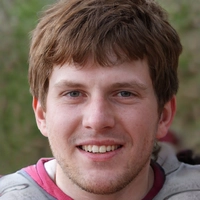Understanding the United Nations
If there's one thing you need to know about me, Jarrett, it's that I am a consummate geek for all things international relations. This geekiness is partly why I've always been enamored with the United Nations (UN), the global organization that brings countries together to promote peace, cooperation, and development. Comprised of 193 member states and many specialized agencies and programs, the UN is a vital force for positive change across the world. To work as a consultant for the UN, you'd be in an environment where everyday issues are about international peace and global development. You'd be rubbing shoulders with some of the globe's leading minds, driving changes that could potentially affect millions of people! Sounds exciting, doesn't it?
Determining Your Area of Expertise
Being a 'consultant' is a broad term, and the UN represents a myriad of fields, from humanitarian affairs to climate change, economic analysis to child rights. Identifying your area of expertise is the first crucial step towards becoming a UN consultant. Look at your current skills, qualifications, and passions. Are you an expert in data management with a passion for education? Or perhaps you have a background in public health and an interest to work on global diseases. Once you've determined your niche, you can target specific UN agencies like UNICEF for children's rights, WHO for global health, UNEP for environment, etc. The key to this step is marrying your passion and skills to an area of UN's work. And remember - no field of study or experience is unimportant! Once, a friend of mine with a background in Theater Studies landed a consulting role in the UN for developing educational plays for refugee children.
Acquiring Relevant Qualifications
Education plays an important role in landing a consulting role with the UN. Most consultants hold at least a Master's degree. Yet, the field of study can vary widely depending on the specific consulting role. If you've identified global health as your area of interest, a Master's in Public Health would be relevant. But don't let this discourage you if you don't hold a Master's degree yet. It simply might mean a bit of detour for further studies — think of it as an investment towards the big goal!
Gaining Practical Experience
Let me quash one myth here — no, you don't HAVE to work in a war-torn country to qualify for a UN job. While field experience is sometimes preferred or required, it's not a given. Practical experience in your area of interest could come from internships, volunteering, or full-fledged roles, and the location can be in your home country too. Both NGO or governmental organizations can provide relevant exposure. And if you can pick up some international experience along the way, it's always a bonus! If you're a newbie, UN Volunteers or internships are great starting points.
Networking and Making Connections
Like any other organization, networking can be a powerful tool when it comes to the UN. Interested in UNDP's work on development economics? Why not attend a related seminar or talk? You might get a chance to hobnob with some UN personnel. You can also connect with professionals on LinkedIn or join UN-related groups and forums. But remember, networking isn't just about asking for opportunities. It's about building relationships and showing genuine interest in the other person's work.
Applying for UN Consultancies
Once you've gained qualifications and experience, and identified your area of interest, it's finally time to apply. UN consultancies are usually listed on the UN Jobs website or specific agency websites. Some consultancies are short-term while others can be long-term. Some might require relocation while others can be achieved remotely. Bear in mind, the process can be lengthy and competitive, but don't lose hope - persistence is key here!
Acing the Interview
Rejoice when you get called for an interview because it’s a significant leap forward. Prepare well, focus on your areas of expertise, and how you'd add value to the UN's work. Be ready to answer competency-based questions, and showcase your understanding of the UN's mandate and operations. Always remember, they are not just looking for the best candidate, but the right fit for the agency and specific role.
Maintaining Flexibility and Persistence
Lastly, but very importantly, remember that the path to becoming a UN consultant might not be straightforward. There might be many twist and turns — from additional studies to gaining more experience, to waiting for several months for that interview call. And even when you do land a consultancy, be prepared for the varied rhythm of the UN - from slow bureaucratic processes to hectic field trips. And here's where I'd like to share a snippet from my life (because, after all, we can all do with a real-life tale!).
A few years back, I was working on a UN consultancy bid myself. An opportunity had opened with UNHCR, focusing on refugee education - exactly up my alley. After what seemed like a tedious application process and a nerve-wracking wait that lasted months, I was finally called for an interview. While the interview went well, I was not selected for that role. Was I disheartened? Yes! But did I stop! No! I tweaked my approach, learned from the feedback, expanded my network, and stayed persistent. And while I may not be a UN consultant today, I am certainly not giving up - because it's about the journey and not just the destination, remember?
Calibrating your expectations and being flexible can go a long way towards achieving your goal of becoming a consultant for the United Nations. So, buckle up, and enjoy the ride. Good luck!


